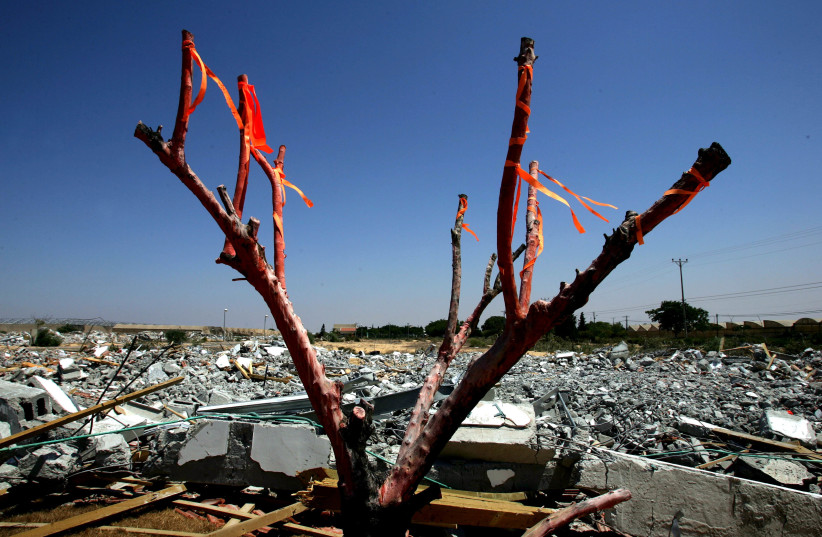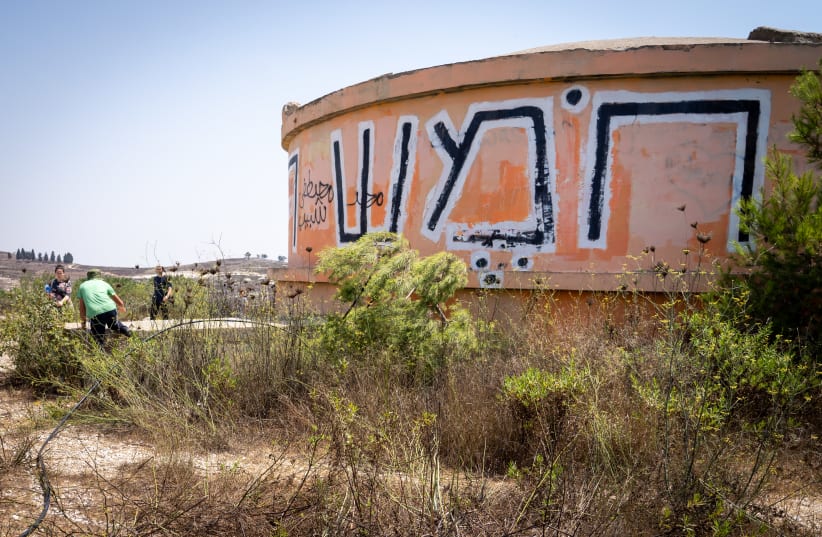Israel took its first small step toward the reversal of the 2005 Disengagement, with ministers approving the legislation that would pave the way to rebuild the four northern Samaria settlements destroyed in that year.
“History was made today,” the Samaria Regional Council enthusiastically stated after the Ministerial Legislative Committee voted on a bill, which although it applies solely to northern Samaria, is seen as symbolic to the overall Gaza pullout in which 21 settlements were evacuated.
Right-wing politicians have pushed over the years to advance such legislation, including six failed attempts at the Legislative Committee, where prime ministerial approval is needed for the passage of a bill.
The matter now moves to a preliminary reading in the Knesset, which will occur this Wednesday. This will be followed by Knesset committee discussions and three more readings in the plenum before the bill could be passed into law.
At issue is the ability to rebuild the four destroyed settlements of Homesh, Sa-Nur, Kadim and Ganim, all of which are in an area so isolated that they are outside the parameters of former US president Donald Trump’s peace deal, which proposed for Israel to apply sovereignty to 30% of the West Bank.

The sites of those former settlements are considered to be in a closed military zone, prohibited to Israeli civilians. The legislation would lift the ban.
"It is impossible to describe the excitement that comes as an injustice that has gone on for years is corrected.”
Yossi Dagan
“It is impossible to describe the excitement that comes as an injustice that has gone on for years is corrected,” said Samaria Regional Council head Yossi Dagan, who is one of the strongest advocates of the legislation. He himself is an evacuee of Sa-Nur.
“We expect that the [2005 Disengagement] Law will be completely repealed and justice will be done,” he said, adding that he finally saw “the light at the end of the tunnel.”
Knesset Foreign Affairs and Defense Committee chair MK Yuli Edelstein, who was among a small group of Likud rebels that opposed the 2005 Disengagement, authored the bill with the support of RZP MK Orit Struck.
“There is poetic justice in the passage of the bill, at least as far as northern Samaria is concerned,” Edelstein said, adding that, pragmatically, he did not believe it foreshadowed a possible return to Gaza.
Prime Minister Benjamin Netanyahu has been under pressure from the US not to allow unilateral steps in the West Bank, including the expansion of Israel’s footprint in the region.
But on Sunday, he risked angering the Biden administration so that he could satisfy members of his party and his coalition.
Homesh: The Israeli settlement built on private Palestinian land
At issue in particular for the Israeli Right is the site of the former Homesh settlement, which, unlike the other three destroyed northern Samaria communities, had been built on private Palestinian land seized by the military before the High Court of Justice prohibited such action.
The High Court returned the property to its Palestinian owners in 2013 and has allowed them to farm the land. Access has been an issue due to the continual presence on the site of a small contingent of the former Homesh Yeshiva, which had once existed at the former settlement.
After the community’s destruction, rabbis and students from the yeshiva illegally put up tents and shacks on the site and have continued to stay there. The IDF’s Civil Administration has evacuated them multiple times, only to have the yeshiva rebuild the structures.
In 2019, Israeli NGO Yesh Din petitioned the High Court, asking that it force the state to permanently ban the yeshiva from the hilltop, arguing that its presence has led to violent altercations and made it impossible for the Palestinian landowners from the village of Burka to farm their land there.
Yesh Din said the issue here was not repealing the Disengagement, “but stealing the land” from the residents of Burka.
“Since they failed to legally justify the settlers’ land theft, the government decides to repeal the law enacted by the Knesset and violated for years in order to retroactively legalize the theft,” Yesh Din said.
“Canceling the Disengagement Law, however, will not change the status of the private lands and it will not be possible to legalize the outpost [the yeshiva].
“In addition, this is a blatant violation of international law and another step in the annexation process led by the Israeli government,” Yesh Din added.
